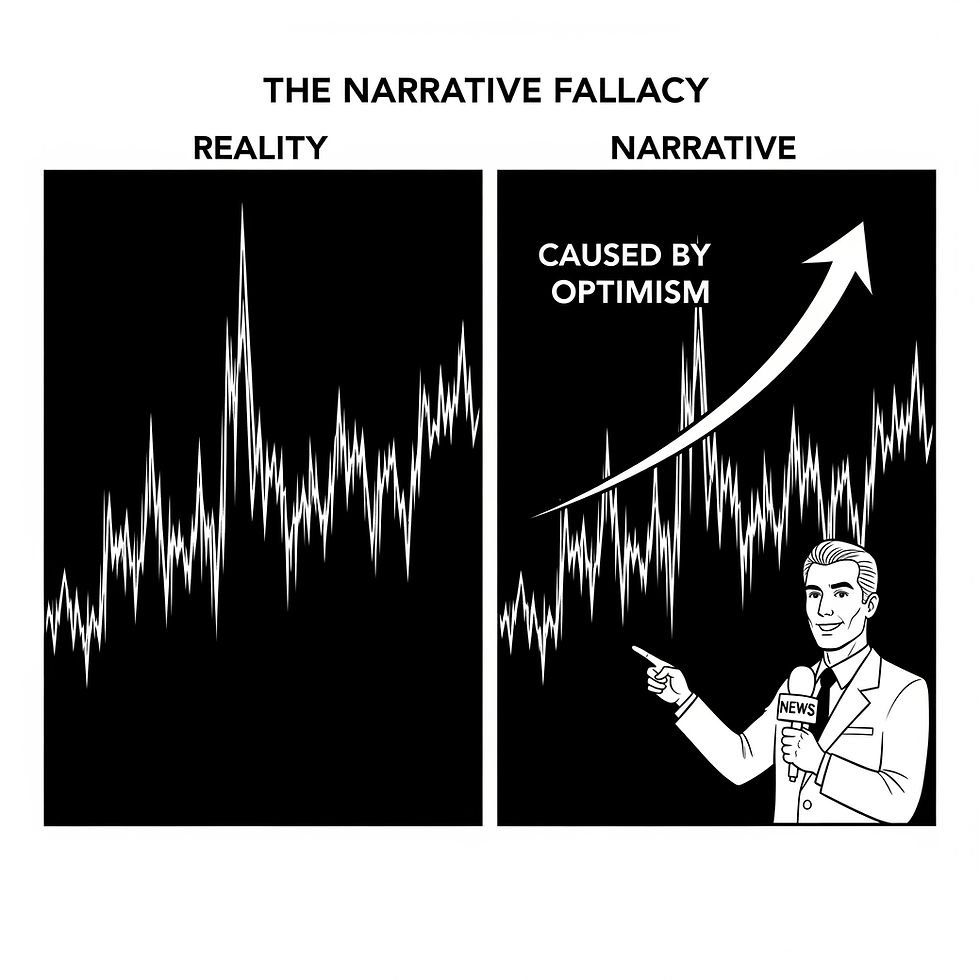The Narrative Fallacy. Why we Simplify a Complicated World
- Stefan Sager

- Aug 16
- 2 min read
Updated: Oct 3
The human tendency to create stories to explain past events, oversimplifying causality and making them seem more predictable than they actually were.
On Monday, the stock market goes up. A news headline reads:
"Markets Rally as Investor Optimism Grows."
On Tuesday, the market goes down. The same news outlet's headline reads:
"Markets Tumble Amid Inflation Fears."
In both cases, a simple, plausible-sounding story––a narrative––was invented after the fact to explain a fundamentally random and chaotic fluctuation, giving the audience a comforting but false sense of understanding.

What is the Narrative Fallacy and why do we prefer simple stories?
Coined by Nassim Nicholas Taleb, the narrative fallacy describes our vulnerability to over-interpretation and our preference for compact stories over raw facts.
We look at a complex series of events––a stock market crash, a company's success, a historical event––and weave a simple story of cause and effect to make it feel coherent and understandable. This gives us the illusion of understanding: a world far more random and unpredictable than our stories admit.
These neat narratives are easier to remember and tell than the complex truth, but they are often dangerously misleading.
This fallacy often works alongside Survivorship Bias, where we use the stories of successful outcomes to completely ignore the messy reality of all the failures that went unseen.
How can I spot a complicated reality disguised as a simple narrative?
Be deeply skeptical of clean, simple stories that explain complicated events.
Actively seek out the messy, contradictory data that was left out of the narrative.
Ask,"Is this story true, or is it just neat?"
We appreciate you subscribing (below) it allows us to:
Publish new Mental Models every week.
Remain 100% independent and ad-free.
Grow our library of resources for the community.
All resources can be found here


Comments